Kinds of feminine gender in Arabic – أَقْسَامُ المُؤَنَّثِ | Arabic Free Course
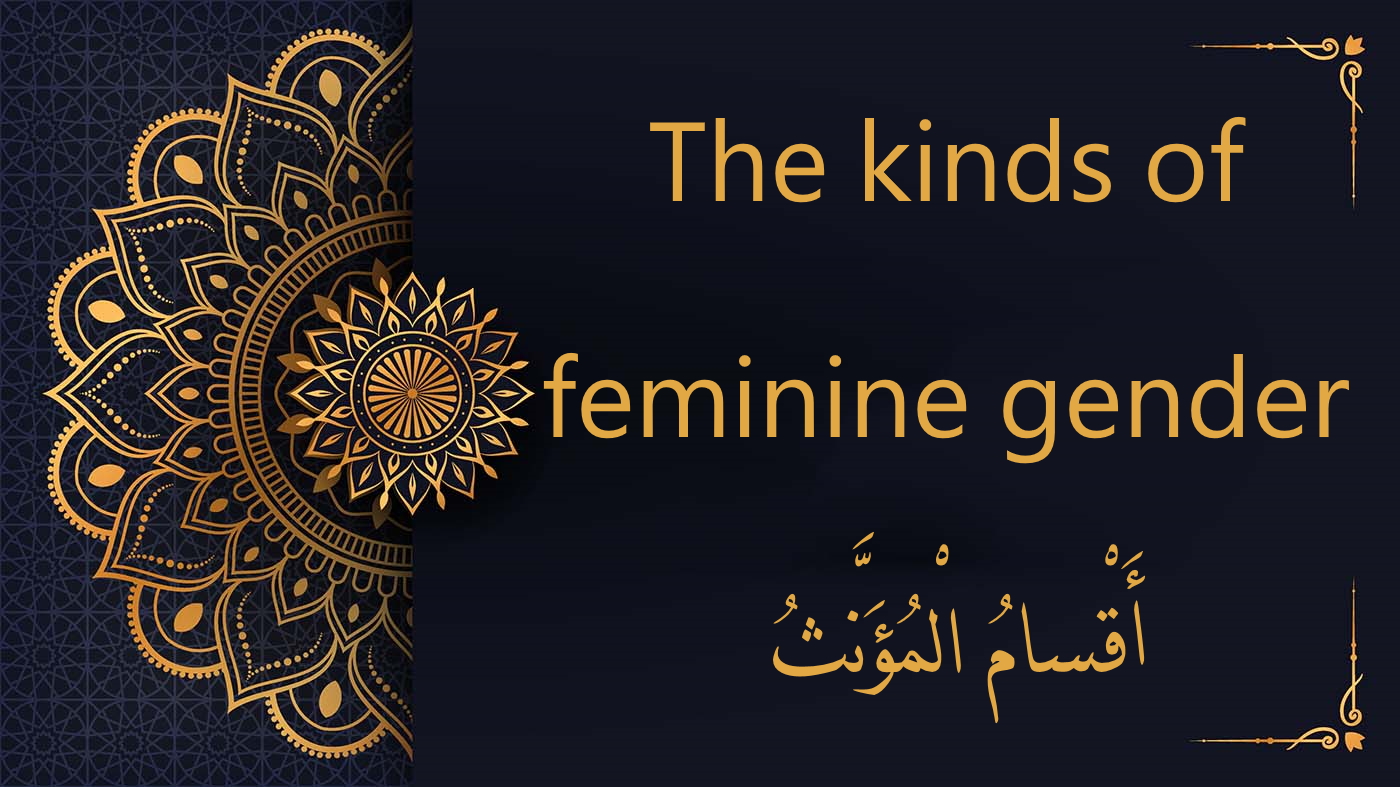
Kinds of feminine gender in Arabic – أَقْسَامُ المُؤَنَّثِ Introduction In Arabic, there are two primary genders: masculine (المُذَكَّرُ) and feminine (الْمُؤَنَّثُ). Outside of specific feminine categories, words generally default to the masculine form. 1. Words intrinsically feminine in meaning Examples: بِنْتٌ – a girl اِمْرَأَةٌ – a woman أُمٌّ – a mother […]
Noun of the instrument in Arabic – اِسْمُ الآلَةِ | Arabic Free Course
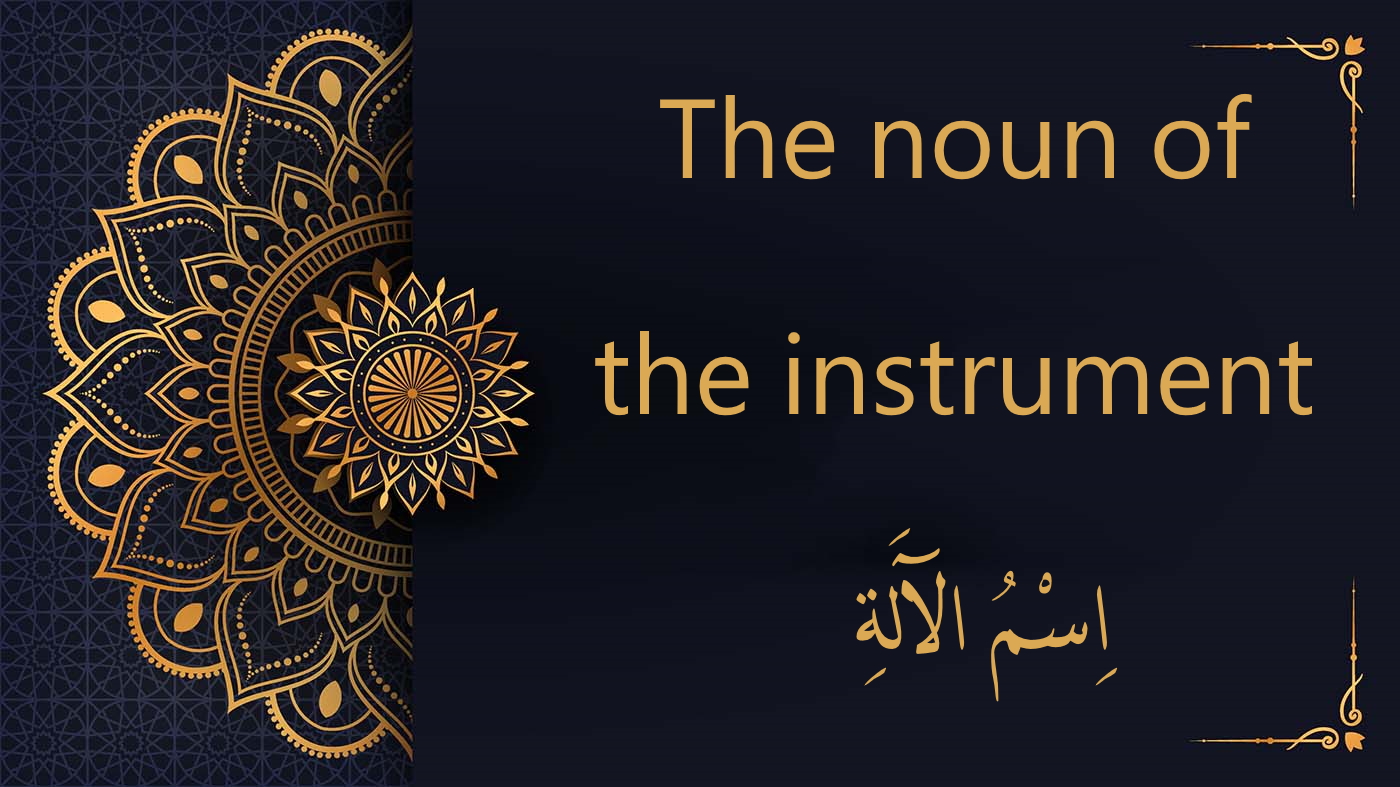
Noun of the instrument in Arabic – اِسْمُ الآلَةِ Introduction The noun of the instrument, known in Arabic as اِسْمُ الآلَةِ, specifically indicates the tool or means by which an action is executed. This noun often serves as an indicator of functionality in the Arabic language. One distinguishing characteristic of this noun is its […]
The noun of place and time – اِسْمُ الْمَكَانِ و الزَّمَانِ | Free Arabic Course

The noun of place and time – اِسْمُ الْمَكَانِ و الزَّمَانِ Introduction Nouns Denoting Place and Time in Arabic: A Deeper Look In Arabic grammar, nouns that express the place or time of an action rooted in a verb are a crucial component. These nouns are traditionally constructed following specific patterns: مَفْعِلٌ Pattern: Example: مَجْلِسٌ […]
Absolute negation in Arabic – لَا لِنَفِي الجِنْسِ | Free Arabic Course

Absolute negation in Arabic – لَا لِنَفِي الجِنْسِ Introduction لَا إِلَهَ إِلَّا اللَّهُ “There is no god except God” (37:35) ذَلِكَ الْكِتَابُ لَا رَيْبَ فِيهِ This is the Book in which there is no doubt (2:2) The لا highlighted in the examples signifies absolute negation. It categorically denies […]
Exception in Arabic – الْاِسْتِفْنَاءُ | Arabic Free Course

Exception in Arabic – الْاِسْتِفْنَاءُ Introduction In Arabic, the particle ‘إِلَّا’ signifies an exception. The noun that succeeds ‘إِلَّا’ is commonly in the accusative case, known as الْمَنْصُوب. Example: لَا إِلَهَ إِلَّا اللَّهُ There is no god except God (37:35) In a sentence utilizing the exception particle […]
Arabic Noun Declension Guide – الإِعْرَابُ في العربية | Arabic Free Course
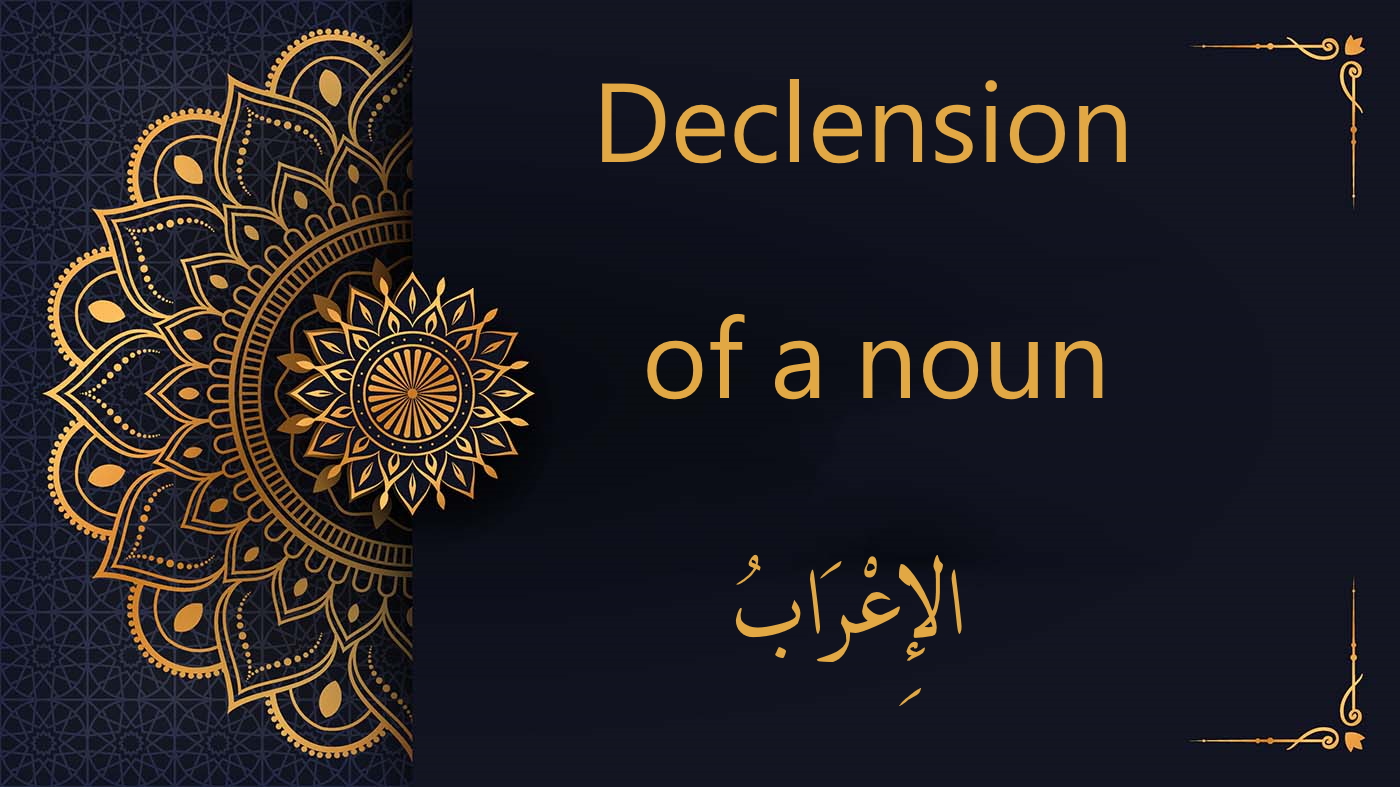
Arabic Noun Declension Guide – الإِعْرَابُ في العربية Introduction In Arabic, the term for declension is الإِعْرَابُ, introduced earlier in Chapter 2. Based on الإِعْرَابُ, nouns are categorized into two groups: Indeclinable (الْمَبْنِي) and Declinable (الْمُعْرَبُ). 1. Indeclinable nouns – الْمَبْنِي In Arabic, a noun with a consistent final vowel is termed الْمَبْنِي. This means […]
Four-lettered verbs in Arabic – الْفِعْلُ المُجَرَدُ الرُّباعِي | Free Arabic Course
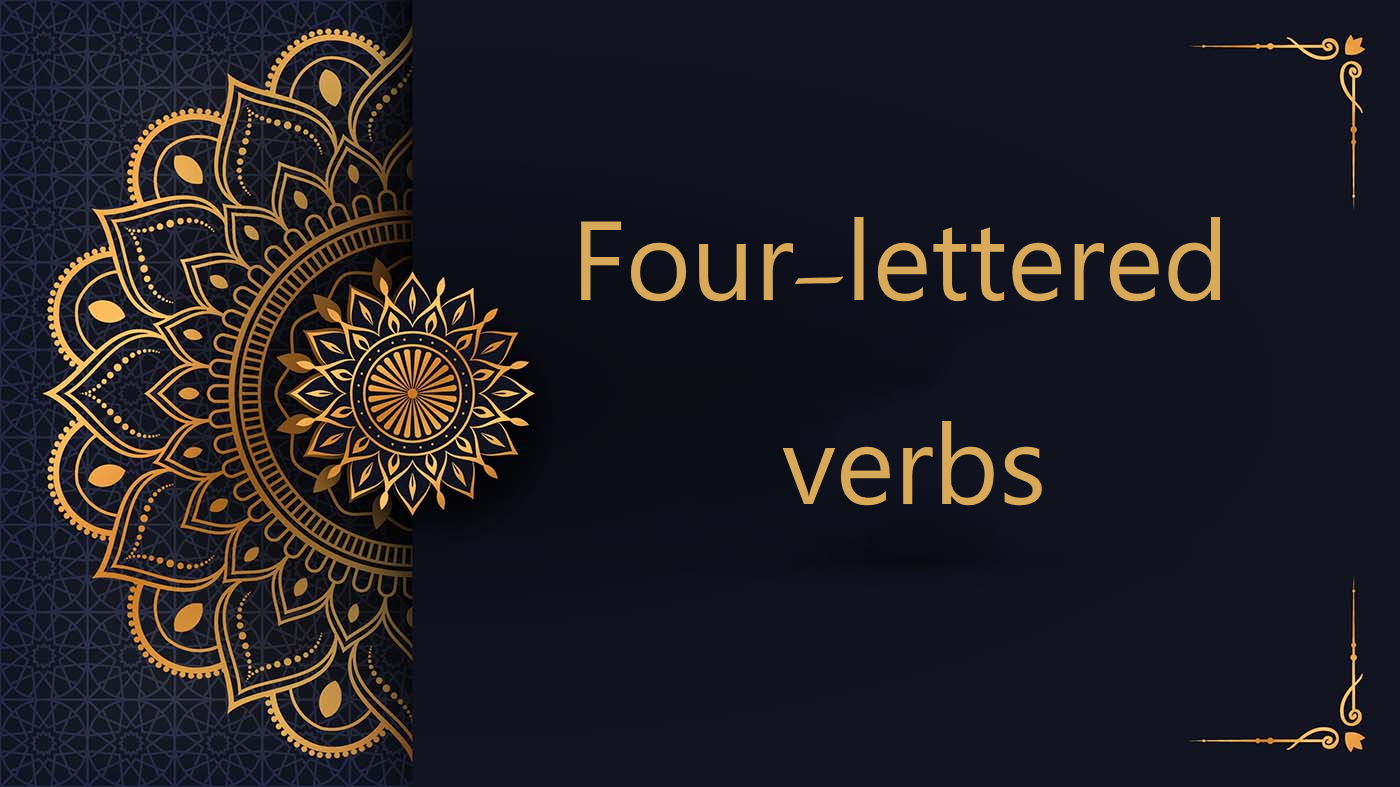
Four-lettered verbs in Arabic – الْفِعْلُ المُجَرَدُ الرُّباعِي Introduction The four-lettered verbs in Arabic, distinct from the more common tri-literal form فَعَلَ, are uniquely constructed from a root of فَعْلَلَ. These verbs consist of four letters and follow specific patterns: Form XII: فَعْلَلَ Form XIII: تَفَعْلَلَ Form XIV: إِفْعَلَلَّ Form XV: اِفْعَنْلَلَ. 1. Table […]
Triliteral Derived Arabic Verb – الْفِعْلُ المُجَرَّدُ الثُلاثِي | Arabic Free Course

Triliteral Derived Arabic Verb – الْفِعْلُ المُجَرَّدُ الثُلاثِي Introduction The verb that encompasses additional letter(s) beyond its primary root is termed as الْفِعْلُ الْمَزِيْدُ الثُلاثِي. These verbs stem from the foundational triliteral roots, signifying their origin and complexity in the Arabic linguistic framework. 1. Triliteral root verb – الْفِعْلُ المُجَرَّدُ الثُلاثِي In the intricate tapestry […]
The verbal Noun in Arabic – اِسْمُ الْمَصْدَرُ | Arabic Free Course

The verbal noun in Arabic – اِسْمُ الْمَصْدَرُ Introduction The foundational entity from which all nouns and verbs stem in Arabic is termed الْمَصْدَرُ. Functioning as a verbal noun, it can be prefixed with the article ‘ال’ or paired with tanween. Moreover, it exhibits declension, adapting to various grammatical roles in a sentence – be […]
Passive Participle in Arabic – اِسْمُ الْمَفْعُولِ | Arabic Free Course
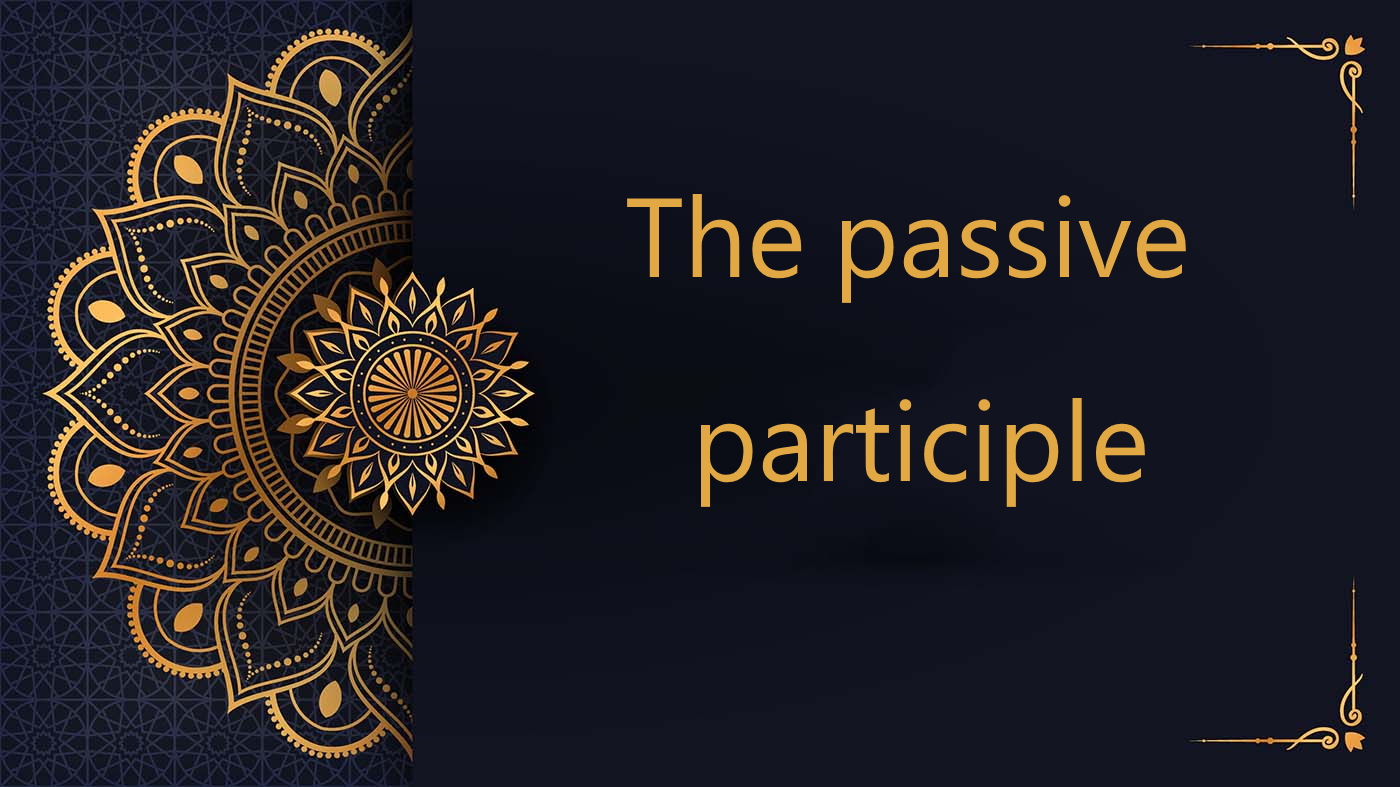
Passive Participle in Arabic – اِسْمُ الْمَفْعُولِ Introduction We’ve observed that الْمَفْعُلُ بِهِ, or the simple object, carries the action of the verb. However, the passive participle, اِسْمُ الْمَفْعُولِ, conforms to the مَفْعُولٌ pattern. Examples: فَعَلَ – مَفْعُولٌ Done فَتَحَ – مَفْتُوْحٌ Opened خَلَقَ – مَخْلُوْقٌ Created جَمَعَ – مَجْمُوْعٌ Gathered عَلِمَ – مَعْلُوْمٌ Known […]

